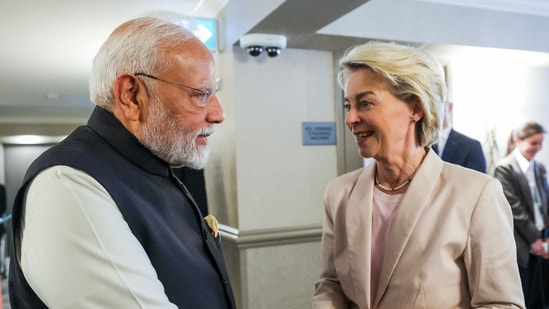Ursula von der Leyen said that “India has an important role to play in bringing Russia to end its war of aggression and helping create a path towards peace.” European Commission President Ursula von der Leyen on Thursday said India has a key role in ending the Ukraine war, after holding talks with Prime Minister Narendra Modi. “We had the pleasure of speaking with Prime Minister @narendramodi. We warmly welcome India’s continued engagement with President Zelenskyy,” von der Leyen said in a post on X.
Giving details of the telephonic conversation, Ursula Von der Leyen stressed that “India has an important role to play in bringing Russia to end its war of aggression and helping create a path towards peace.” She called the conflict a global concern, “This war carries global security consequences and undermines economic stability. So it is a risk to the entire world,” the post added.
Looking to the future of EU–India ties, the EU chief said both sides plan to agree on “a joint strategic agenda at the next EU–India summit, as early as possible in 2026.” She also reaffirmed commitment to “concluding the Free Trade Agreement negotiations by the end of the year,” but underlined that “progress is needed now.”
The push for an early conclusion follows Narendra Modi’s prior discussion with Ursula von der Leyen on February 28, where both sides agreed to finalise the long-pending deal by the end of this year.
Progress of India-EU Free Trade Agreement
The talks of PM Modi with EU chief comes day after external affairs minister S Jaishankar on Wednesday said India wants its ongoing negotiations with the European Union on a free trade agreement (FTA) to reach a “decisive conclusion” at the earliest.
He made the remarks at a joint media briefing after talks with his German counterpart Johann Wadephul, who was on two-day visit to India. Meanwhile, India will open the 13th round of FTA negotiations with the EU in New Delhi on September 8, after the previous round in Brussels earlier this year.
The two party had resumed talks in June 2022 after an eight-year gap, aiming for a comprehensive FTA along with an investment protection agreement and a pact on geographical indications. The process was stalled in 2013 due to differences over market access.



